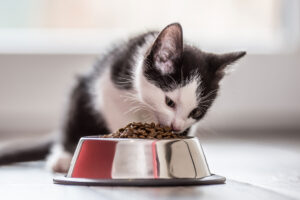Pet Poisonings are far more common than one would think. There are several types of materials that are toxic to our furry friends, so we need to be extremely careful with many common household goods.
March is Pet Poison Prevention awareness month, and your team at Front Range Veterinary Clinic wants you to be aware of many of the most common household toxins to pets.
Grapes & Raisins:
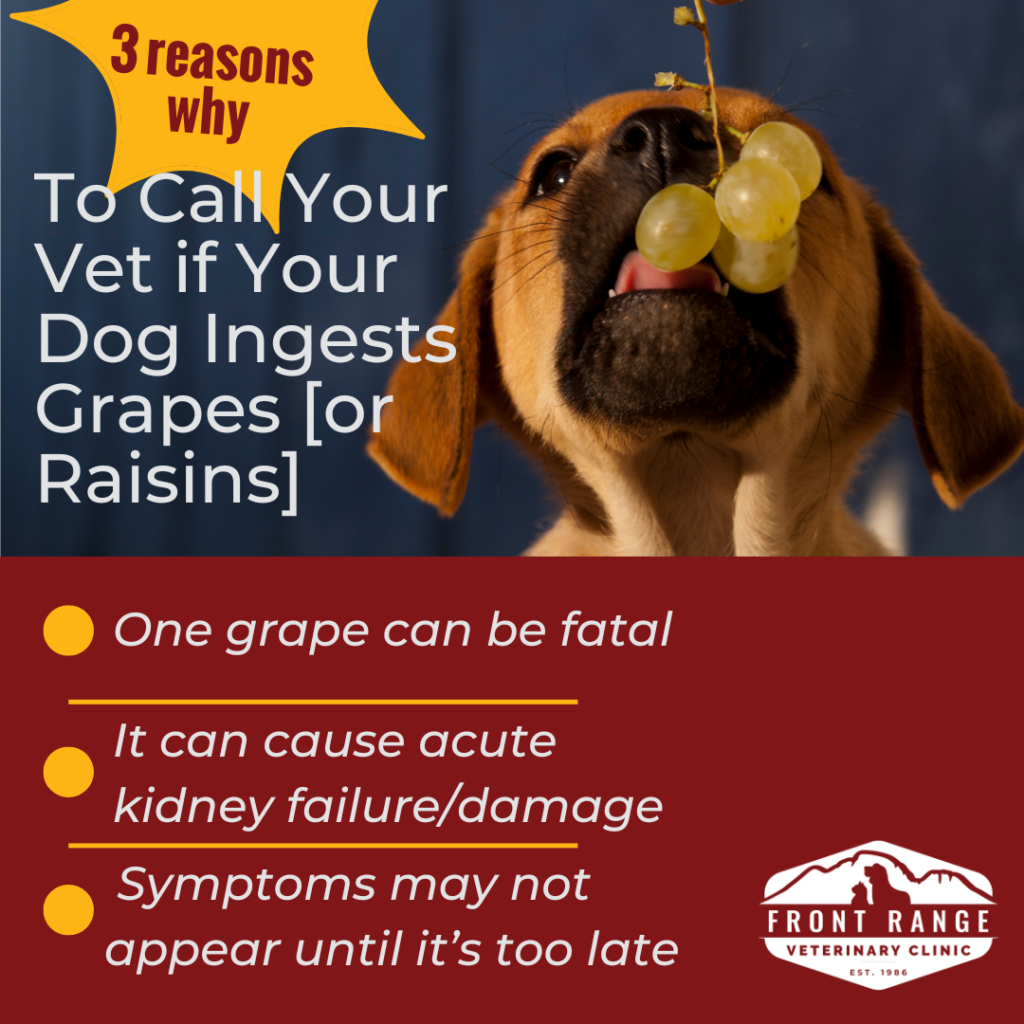
Grapes and raisins are extremely toxic to dogs. Symptoms include vomiting, lack of appetite, lethargy, and diarrhea. It is important to begin seeking treatment with your veterinarian immediately as ingestion of grapes can lead to kidney failure.
It is best to avoid feeding your dog grapes and raisins at all costs, however, if you do suspect that your pet has ingested grapes or raisins, contact us immediately.
Marijuana:
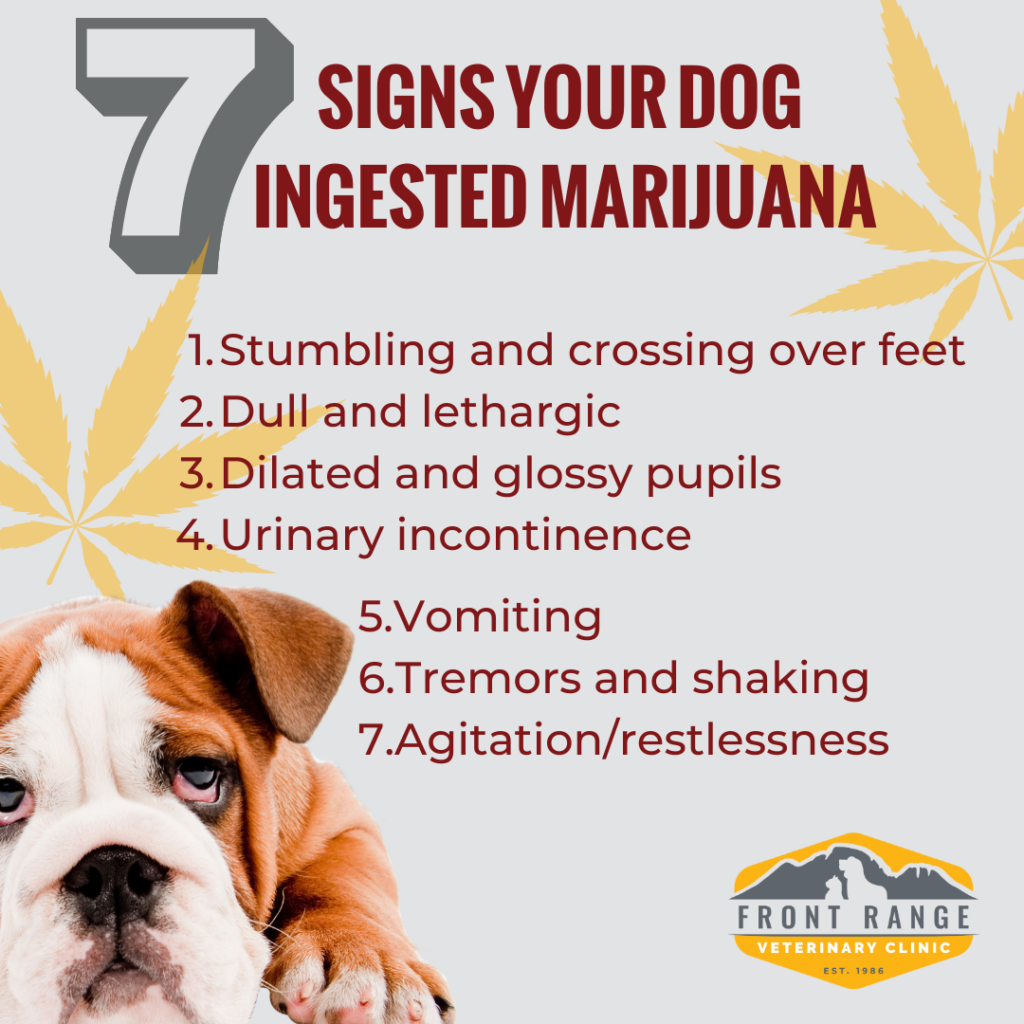
While marijuana consumption can be a fun time for legal adults, we need to be aware of the risks ingesting marijuana can have for our pets. With the legalization of marijuana, there have been shocking increases in the number of reported marijuana toxicity cases for pets in those states.
Symptoms of marijuana toxicity include stumbling and crossing over feet, lethargy, dilated pupils, incontinence, vomiting, tremors/shaking, and agitation. Depending on the amount of marijuana ingested, your pet may require hospitalization for IV fluids and additional care.
It is always recommended to seek care from your veterinarian if you suspect your pet has ingested marijuana in any form. Contact us if you suspect your dog or cat has ingested marijuana.
Other Common Toxins:
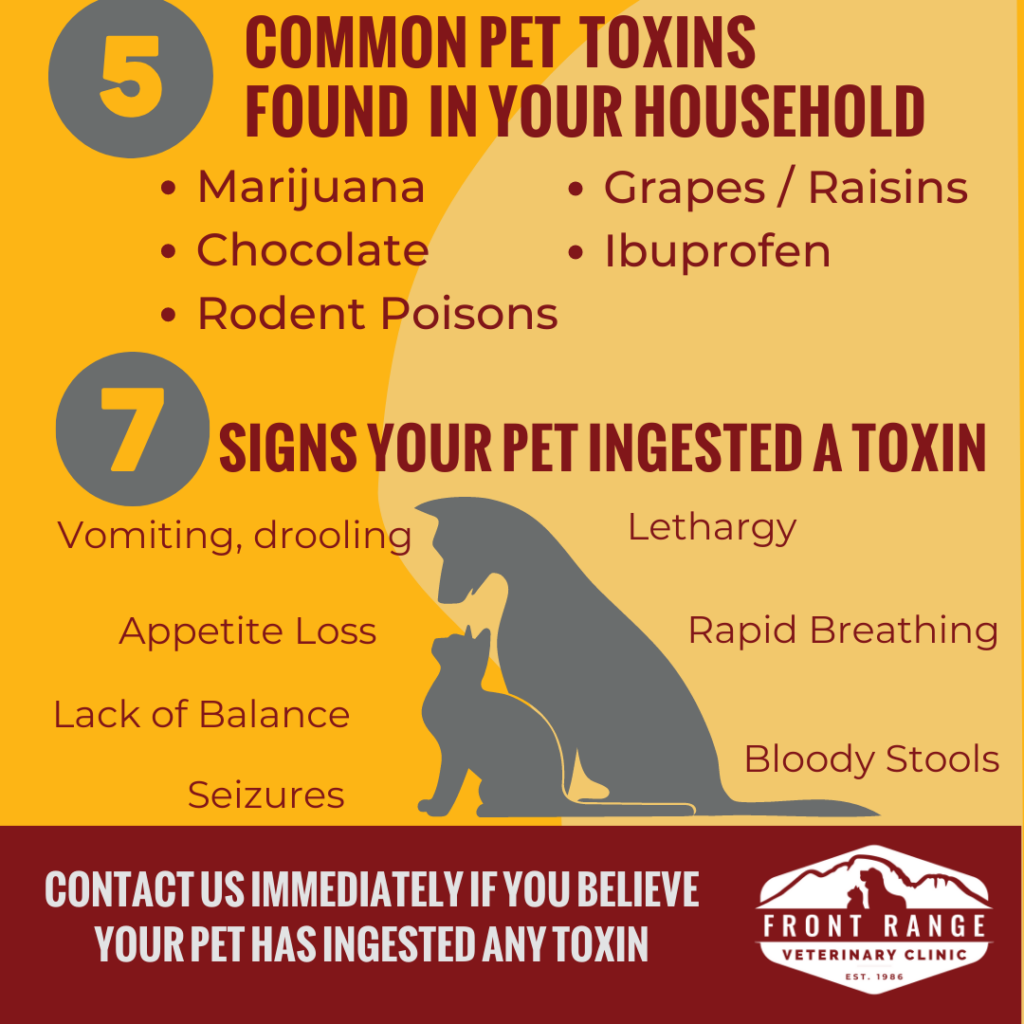
Marijuana and grapes & raisins are only a few of the common toxins that are dangerous to pets in the average household. Did you know that common items like chocolate, ibuprofen, and items such as rodent poisons are also extremely dangerous to our pets?
Symptoms of toxicity from these common household items include:
- Vomiting
- Drooling
- Appetite Loss
- Lack of Balance
- Seizures
- Lethargy
- Rapid Breathing
- Bloody Stools
It is imperative that you contact us immediately if your pet has ingested any toxic items around your home. In many cases, time is of the essence and the sooner treatment can be administered, the better.
We’ve learned about several common household items that are toxic to dogs and cats. But toxic substances aren’t limited to common indoor items. Did you know that there are several plants and flowers that are also highly toxic to our pets?
Toxic Plants:
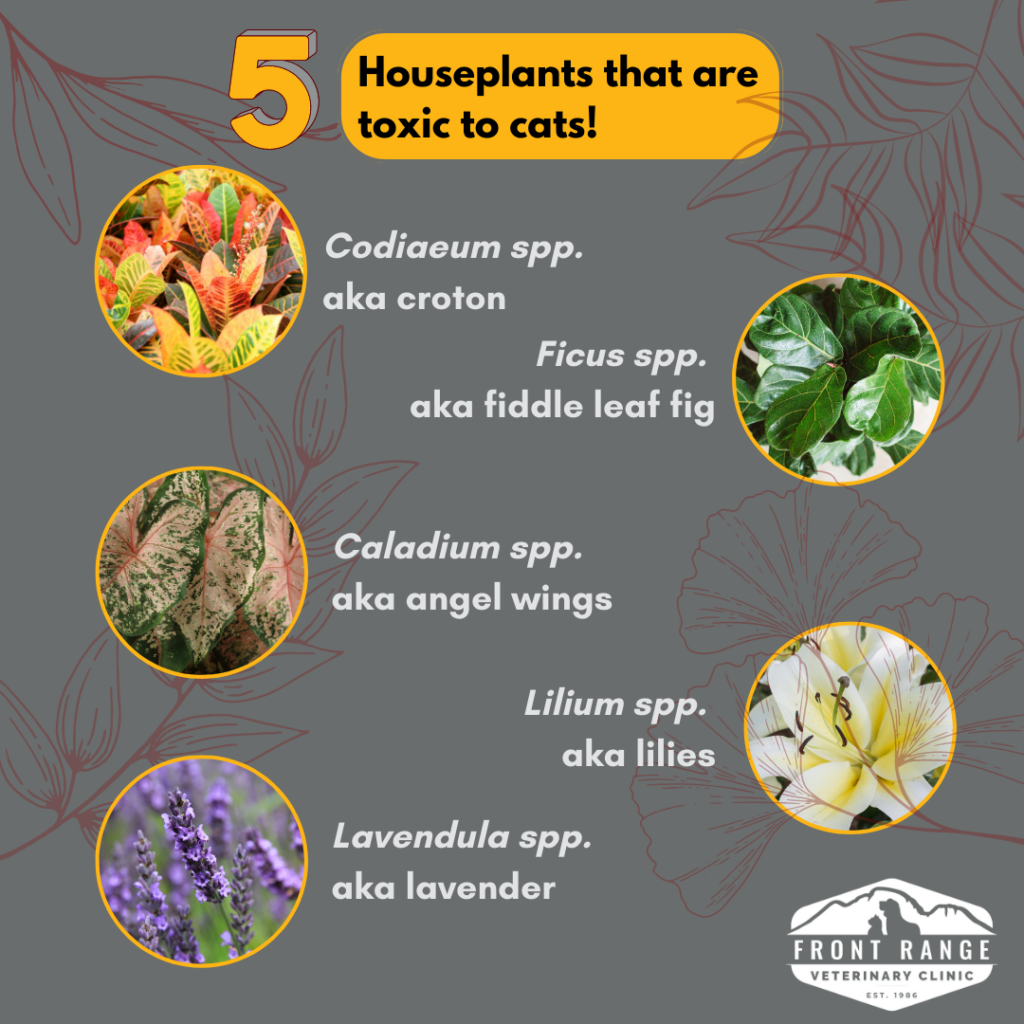
Dogs and cats are vulnerable to toxicity from many common plants and flowers.
Here are 5 of the most common houseplants that are poisonous to our pets:
- Codiaeum spp. or Croton
- Ficus spp. or Fiddle Leaf Fig
- Caladium spp. or Angel Wings
- Lilium spp. or Lilies
- Lavendula spp. or Lavender
Signs that your pet has ingested a toxic plant include:
- Abdominal Pain
- Vomiting
- Lethargy
- Drooling
- Blistering in The Mouth/Oral Discomfort
- Diarrhea
- Eye Irritation
- Nausea
- Skin Irritation
- Reduced Appetite
It is extremely important to keep your pets away from areas of the home that contain toxic plants or supervise them when they are in these areas of your house.
Like other common household toxins, it is important to seek treatment immediately if you suspect your pet has come into contact or ingested any toxic plant material.
If you’re experiencing an emergency related to toxic plants, contact us immediately or bring your pet directly to our veterinary clinic.
If you have any questions about common toxic items around the home, Front Range Veterinary Clinic in Fort Collins, CO is here to help! Give us a call at (970) 484-5667.


